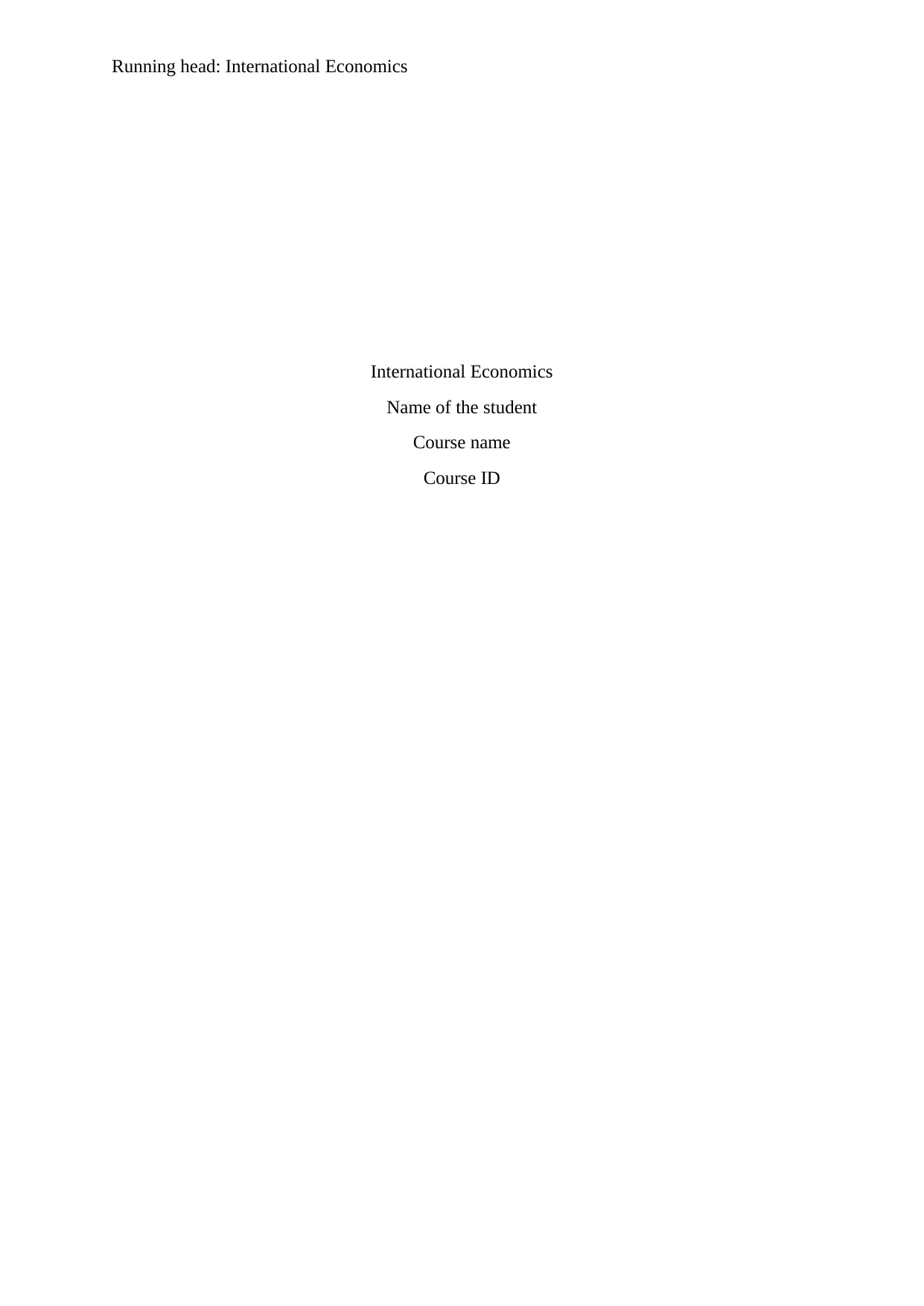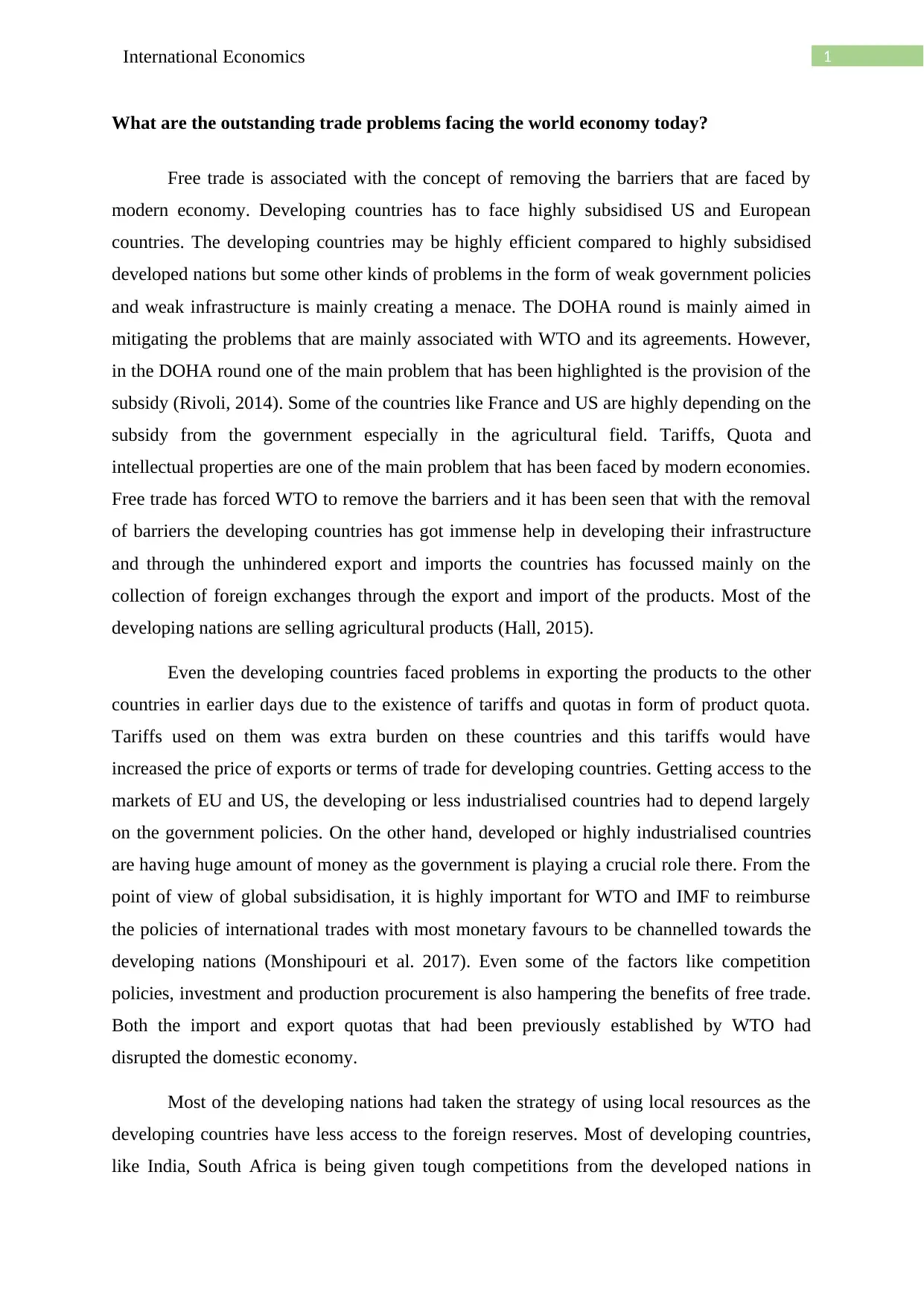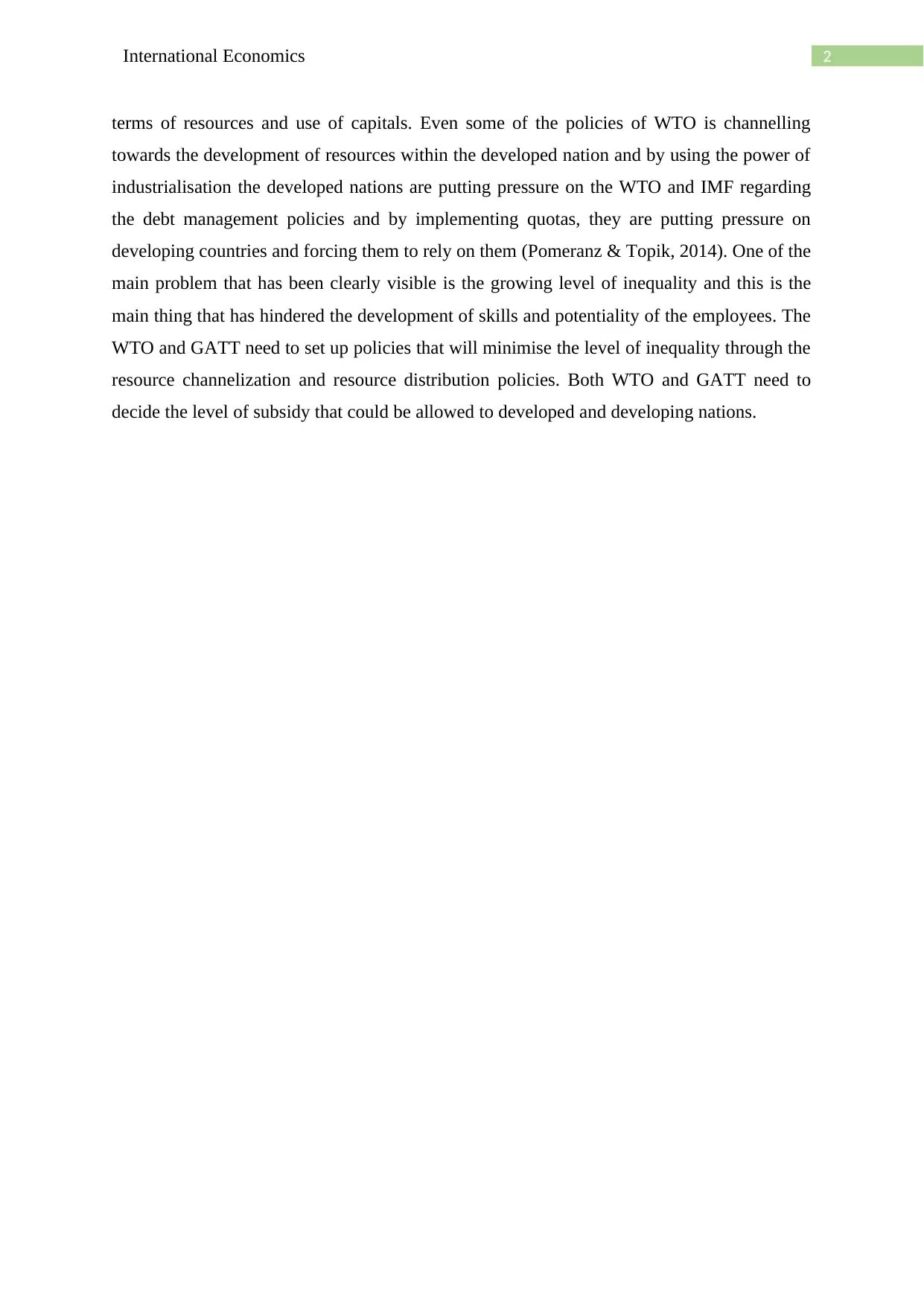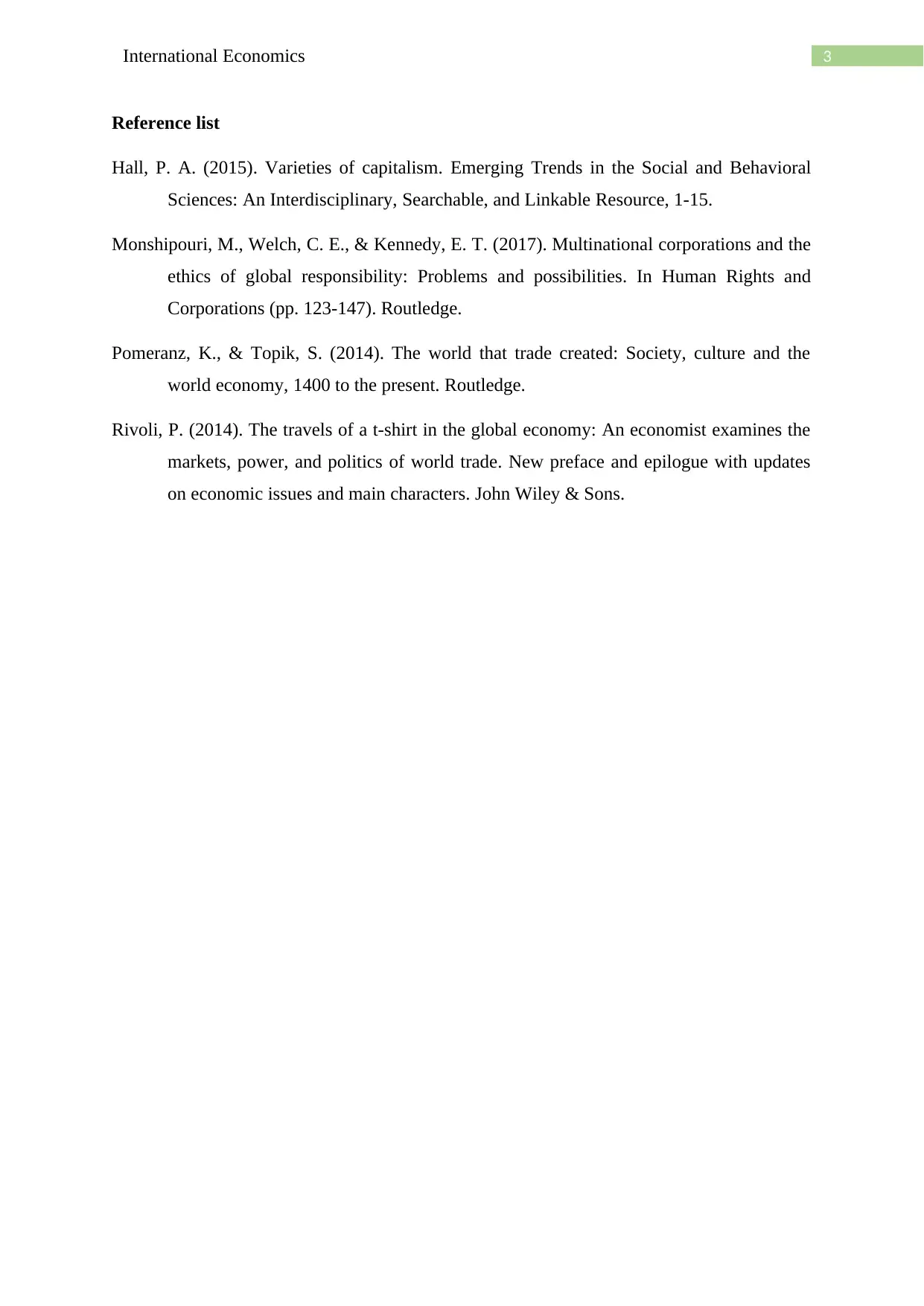ECO320: Evaluating Outstanding Trade Problems in the World Economy
VerifiedAdded on 2022/09/17
|4
|818
|19
Discussion Board Post
AI Summary
This blog post, written for an ECO320 assignment, delves into the significant trade problems plaguing the world economy. It highlights the challenges faced by developing countries in the face of highly subsidized developed nations, particularly from the US and Europe. The post discusses the role of the WTO and the issues arising from the DOHA round, including subsidies in agriculture. It examines the impact of tariffs, quotas, and intellectual property rights on free trade, and how these factors affect market access and economic development. The author emphasizes the importance of government policies, global subsidization, and the need for WTO and IMF to support developing nations. The post also addresses issues like competition policies, investment, and the growing level of economic inequality. The author concludes by emphasizing the need for policies that minimize inequality and regulate subsidies, drawing on references from academic sources.
1 out of 4











![[object Object]](/_next/static/media/star-bottom.7253800d.svg)